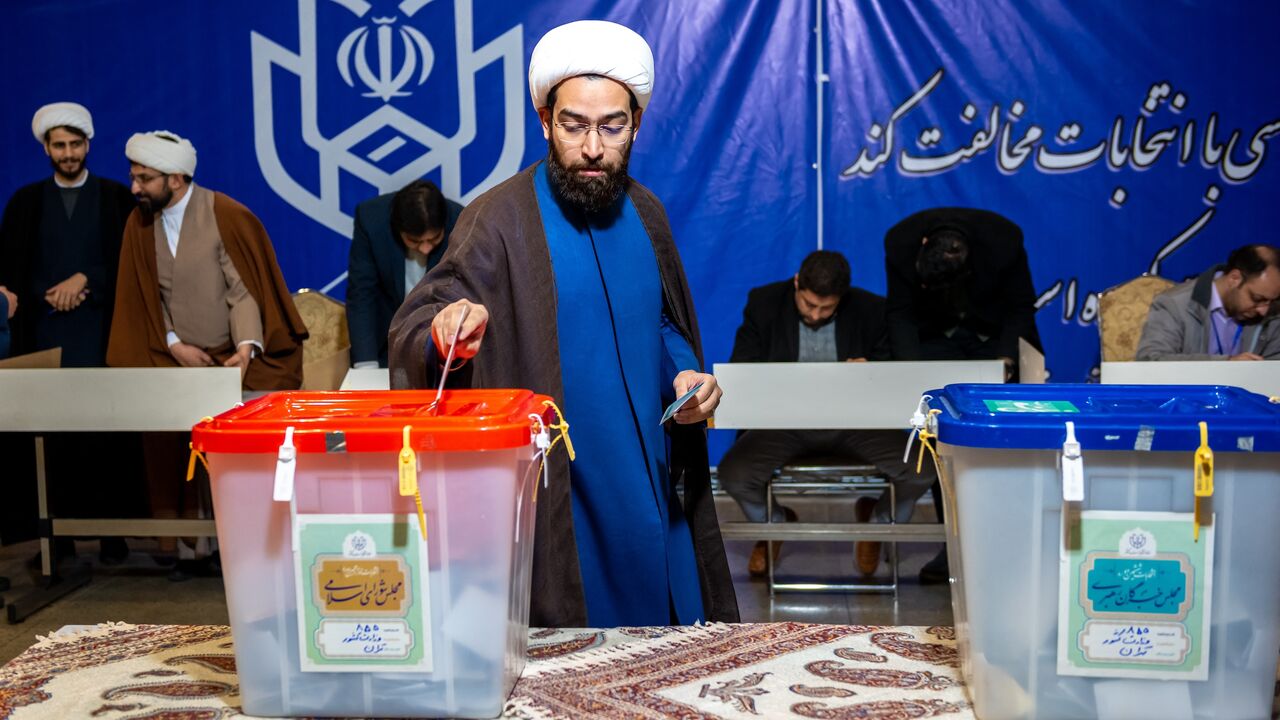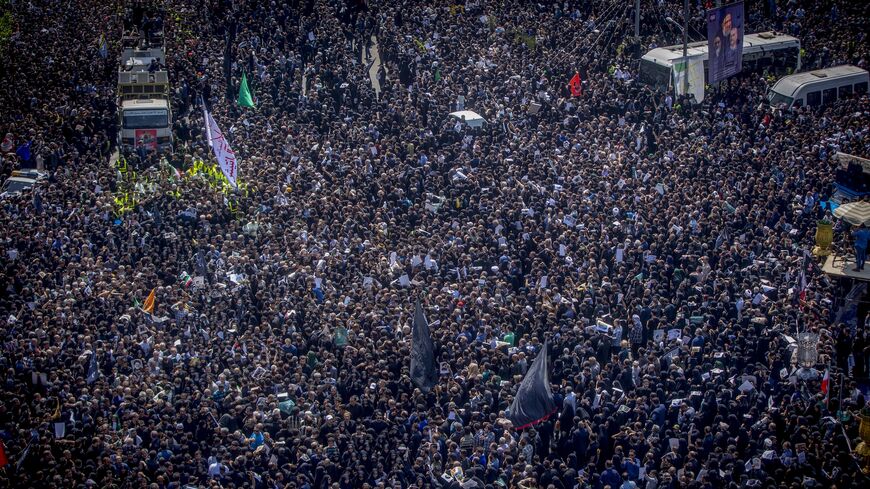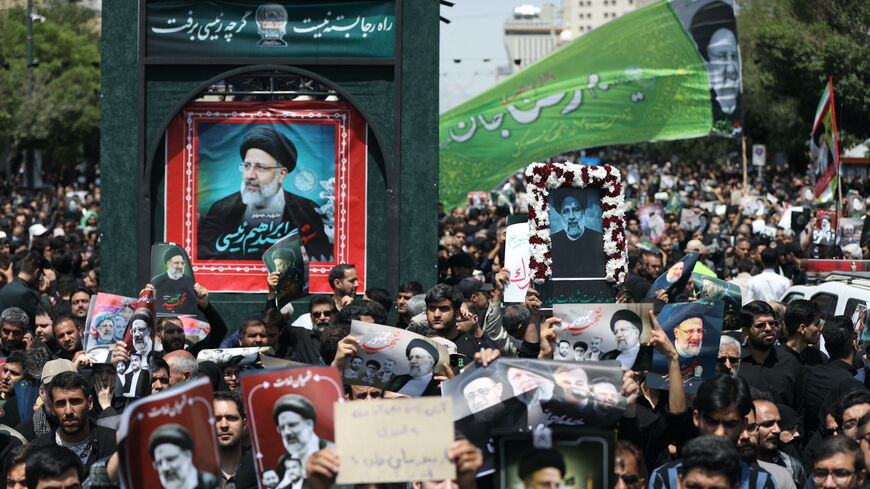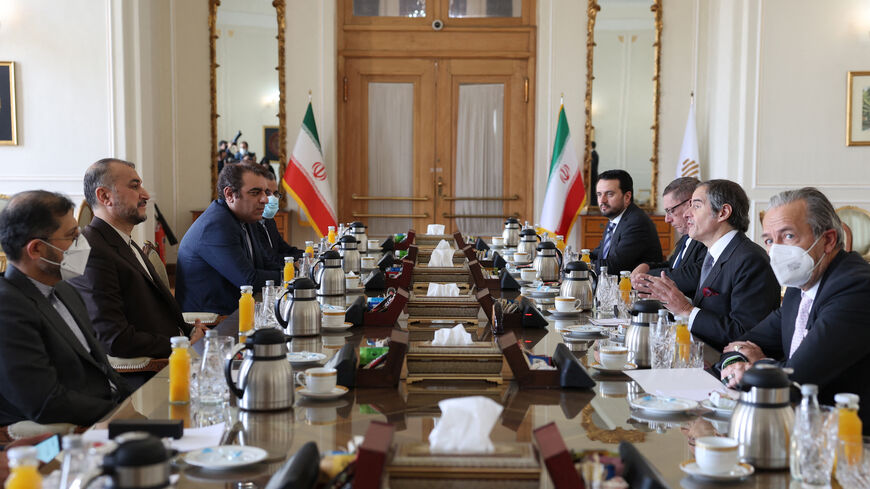What Iran's elections could signal about potential for US escalation
The sudden death of Iranian President Ebrahim Raisi has plunged the country into new uncertainty, but it’s unlikely to derail Washington's quiet push to dial back tensions with Tehran.

You're reading an excerpt from The Takeaway, where we break down the latest in US-Middle East diplomacy. To read the full newsletter, sign up here.
WASHINGTON — Mere days before a helicopter crash killed Iranian President Ebrahim Raisi and Foreign Minister Hossein Amir-Abdollahian in the country’s mountainous northwest, Iran quietly dispatched a senior delegation to Oman to hold secret indirect talks with US officials aimed at defusing tensions in the region.
Those lines of communication between the two longtime adversaries are likely to stay open no matter who replaces Raisi and his foreign minister. As the Iranian Mission to the United Nations itself said in a statement confirming the negotiations, they were “not the first and will not be the last.”
“The Biden administration wants to avoid a crisis with Tehran in the run-up to the November elections,” DiMaggio said. “For the 85-year-old Ayatollah Ali Khamenei, the most pressing issue on his mind is preparing for his own leadership succession and ensuring that it goes smoothly.”
Iran and the United States have lacked diplomatic relations since 1980. They primarily communicate through intermediaries including the Gulf state of Oman and the Swiss Embassy, which represents US interests in Tehran.
Before his death on Sunday, Amir-Abdollahian insisted in a January interview with Al-Monitor that Iran was using those back channels to convey it wasn’t interested in a broader regional conflict stemming from the Gaza war.
The latest talks are part of the Biden administration’s efforts to manage tensions, which soared last year as the Iranians provided drones to Russia for use in Ukraine, escalated their uranium enrichment and lent support to regional militias including Hamas in the Gaza Strip, Hezbollah in Lebanon and the Yemen-based Houthis.
Status quo to endure
Analysts expect the status quo to continue under Raisi’s eventual replacement.
“All key decisions are made by Supreme Leader Ayatollah Ali Khamenei, which means that foreign and domestic policies will continue on the same trajectory regardless of who is president,” said Holly Dagres, a nonresident senior fellow at the Atlantic Council specializing in Iranian affairs.
Iran will hold elections on June 28 as required by the constitution, with Vice President Mohammad Mokhber serving as president until then. Ali Bagheri Kani, a veteran nuclear negotiator who participated in last week’s indirect talks with the United States, has been named acting foreign minister.
The presidential hopefuls will be subject to a strict vetting process conducted by the Khamenei-controlled Guardian Council. Some of the names floated as possible candidates, including former parliament speaker Ali Larijani, were disqualified from running in previous election cycles.
Khamenei remains the ultimate decision-maker in Iran, but the election of a new president could result in some subtle shifts depending on the candidates.
“If centrists and Reformists are allowed to run and win, it likely won't change Iran's focus on improving relations with China, the Global South and with Iran's immediate neighborhood,” said Trita Parsi, the executive director of the Quincy Institute for Responsible Statecraft. “But the significant deprioritization of relations with the West that we've witnessed in the past few years may be softened.”
Raisi, a former judiciary chief with a record of human rights abuses under his watch, won by a landslide in a controversial June 2021 election that saw historically low voter turnout. He replaced Hassan Rouhani, a relative moderate within Iran’s theocracy who opened Iran up to the West through negotiations that led to the 2015 nuclear agreement.
The Trump administration exited the deal in 2018 before reimposing punitive economic sanctions on the Islamic Republic. Unable to revive the pact, the Biden administration last year pursued an informal agreement to cool tensions and secure the release of several imprisoned Americans.
Raisi’s tenure saw a deepening of Iran’s relations with China and Russia, enrichment of nuclear fuel near bomb-grade levels and a bloody crackdown on anti-government protests starting in September 2022. The contest for his chosen successor will be an indicator of the regime’s priorities as it confronts challenges ranging from a sagging economy to a shadow war with Israel.
“I’m sure the Biden administration will be looking at this kind of jockeying — which has already started between different regime characters — to read signs about the direction the regime wants to take,” said Michael Singh, a former National Security Council senior director now at the Washington Institute.
“But at the end of the day, I think there's no real illusions that the regime has taken a hard-line turn away from rapprochement with the West," Singh said.









